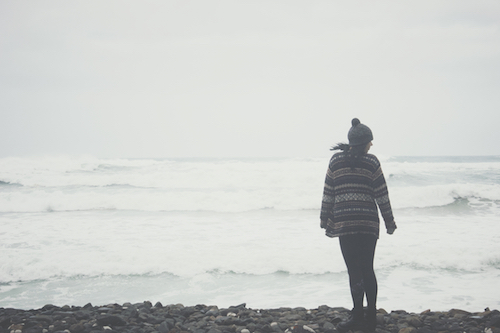As part of this year’s theme “Healing Through Storytelling,” below is the account of a Collective member sharing why she Takes Back The Night. If you’d like to answer Susanna’s call to listen and speak out, please join us on April 28th. If you’d like to share your story and be featured in a blog post, please email us at ithacatakesbackthenight@gmail.com.
I am 48 years old, and this is the first time I’ve been involved with Take Back the Night. Why now, you might ask, as I have. What’s changed?
Of course, I’ve been aware of sexual assault and domestic violence, ever since asking my mother what happened to Mary on All My Children, back when we called it “Mommy’s cartoon.” As a child I watched After-School Specials and crime dramas, and I read issue-driven young adult novels. Eventually I heard stories about classmates and acquaintances, in hushed tones, often accompanied by nervous, barely-suppressed laughter and speculations about the victim’s participation: the woman who danced naked on a table, then never returned to college; the woman who ‘entertained’ multiple men in her dorm room and then was ostracized; the woman who passed out and then awoke to being penetrated—at least that’s the story she told.
Somehow, as a woman, I had become complicit in the culture that blames the victim of sexual violence. I had learned to question the stories, in part because I questioned my own role in the relatively minor experiences I had had with unwanted sexual advances. My body did not always feel like it was my own. My mind often did not feel like my own. I had learned to question everything, but most notably, to question myself. I did not feel in control of my public persona, my reputation, my role in society. I was a blank slate to be written upon by the actions of others. I did not feel capable of saying no, and when I did, I later questioned whether I really meant it.
As a result, I felt distanced from other women. I felt that we were at war, that they were always telling me how I should be and that men were telling me something else. I was caught in the middle.
The problem was, I individualized my experience: I wasn’t afraid to walk alone, at night, why should they be? I wasn’t a cold fish, why were they? I wasn’t one to say no, why did they?
Like many people, I wasn’t motivated to change this perspective until it became personal, which, ironically, also made me see things from a social/cultural perspective, and my own role in perpetuating the myth that the victim is to blame. It made me question the overly simplistic dichotomy of man/woman and aggressor/victim. It was the intertwining of the individual and the institutional that struck me so boldly, finally, in the head and in the heart.
A child is neglected by parents without resources, who are hobbled by mental illness, poverty, and addiction, and a predator steps in to fill the gaps. The child is not heard, not believed, is blamed for his bad behavior and sent to detention centers, where he is further abused and made to feel invisible. As he grows into a man, family and teachers enlist the aid of the authorities, and they further mold him into an outsider, a renegade, a broken person, and they blame him. He makes many poor decisions; he learned, in being a tool for the desires of someone else, that his perceptions could not be relied upon, and he finds the everyday dizzying. He lashes out in violence; he has learned that violence gets results. He drinks to excess, over and over again; he has learned the value of blackouts and forgetting. He tries, over and over again, to end his life; he has learned that reality is unbearable.
In that narrative, that story that is more common than any of us like to think, lies the interconnectedness of all of us. These are our institutions, our safety nets, our values, that have failed this child. We are, as a society, implicated in the perpetuation of systems that allow some people to be less visible, less important, less human. And these failures are toxic for all of us, not just for the survivors of such violence. The implications are often life long, in the form of PTSD, depression, anxiety disorders, and behavioral issues. Loved ones also suffer, feeling the brunt of the frustration and confusion that sexual violence can cause. Sometimes, for survivors, surviving is all they can manage, and potential is quashed. What if all those survivors could contribute, fully, to our society?
They can, and if I have my way, they will. A first step is to listen and to not turn away; to resist blaming, but instead to take responsibility, as individuals and as a society. Language matters. Common decency matters. Mutual respect matters. Sexual violence crosses all boundaries of gender, age, class, and race. It is about the misuse of power. All of us who can speak out, must. We need to stand together to create a world where personal boundaries are respected, where people feel valued, where no means no; where we feel free to say no, and know we will be heard. We must create a world where all of us are seen in our glory and in our imperfection. We need to take back the night.
